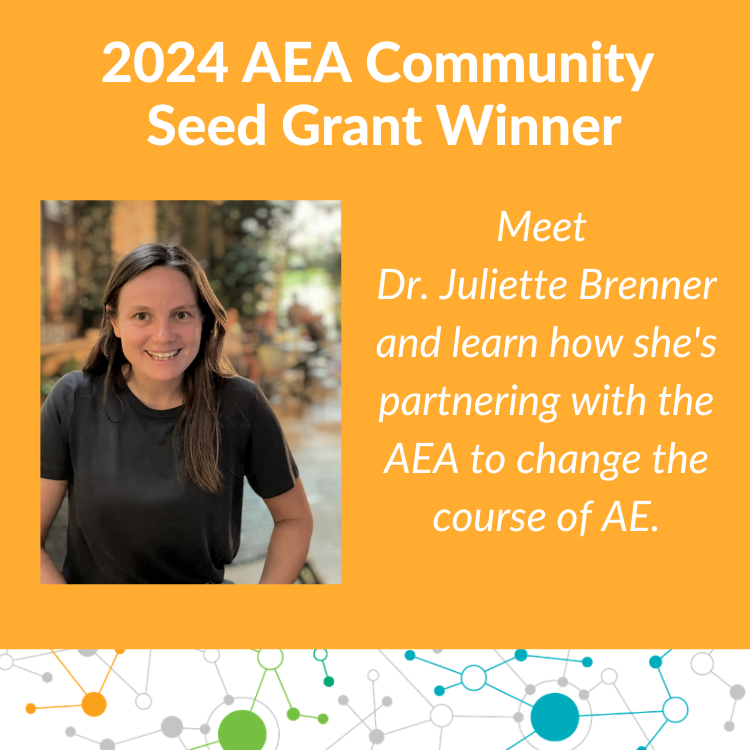Meet Dr. Juliette Brenner
October 7, 2024

Dr. Juliette Brenner (Erasmus MC University Medical Center, Rotterdam, The Netherlands) was awarded a 2024 AEA Community Seed Grant for the investigation of Validation of a new (patient-reported) outcome measure for encephalitis. Learn more about her research and how it impacts those affected with autoimmune encephalitis. The start date for the award is September 1, 2024.
You have been awarded an AEA Community Seed Grant, can you tell us more about the study you plan to do?
I am very grateful to receive the grant. It allows me to take the final and important steps in launching a new scale for measuring the (long-term) effects/outcome of autoimmune encephalitis. In most of the current research trials on encephalitis, generic outcome measures are used. These measures were originally designed for other (neurological) diseases, and work very well in capturing mobility-issues and whether people return to independent daily living. Although this is relevant information, it is not the complete story for encephalitis patients. Many autoimmune encephalitis patients experience cognitive, behavioral or emotional difficulties for years following the encephalitis, impacting their education, work and/or social interactions. Being able to capture these relevant aspects of outcome of autoimmune encephalitis would be more informative for future patients, and it would increase the likelihood of finding meaningful effects of new therapeutic options for example (it would increase the ‘power’ of research trials).
I have spent the past four years developing a new Patient-Reported Outcome Score for Encephalitis, the ‘PROSE’. The PROSE, is now almost ready to be used in trials. To be able to employ it worldwide, it needs translation and external validation in other languages and independent cohorts. The AEA Edward Arditte Community Seed Grant allows me to take these next validation steps, together with my research group at the Erasmus University Medical Center in Rotterdam, led by Maarten Titulaer, and the encephalitis research group in Berlin, led by Carsten Finke. I look forward to sharing the results with you in the near future.
How will your study help patients and families affected by AE?
With the Patient-Reported Outcome Score for Encephalitis, we will be able to record the consequences of autoimmune encephalitis on a large scale in greater and more relevant detail than is currently often done. The PROSE is a relatively short self-reported score, minimizing the burden for patients to participate, whereas the disease-specific topics addressed maximize the quantity of relevant information generated.
Insight on the disease-specific (longer term) consequences of autoimmune encephalitis on a large scale, can be very informative for future patients. It may also accommodate rehabilitation programs tailored to the common difficulties people experience after living through an autoimmune encephalitis. Finally, measuring outcome in greater and more relevant detail, will increase the likelihood of capturing effects of new therapeutic options for autoimmune encephalitis.
Tell us more about yourself and your affiliation?
I am Juliette Brenner. I am a neurology resident and PhD candidate at the department of Neurology of the Erasmus MC University Medical Center Rotterdam, the national Academic Center of Expertise for autoimmune encephalitis (AE), and has been accredited a European Reference Network site (ERN-RITA).
I have spent the past four years doing a PhD on measuring and predicting outcomes of autoimmune encephalitis. One of my projects was to develop the PROSE, which I mentioned a lot in the previous questions. As part of the development process, I organized focus groups with patients, which sparked the subconscious desire of patients for representation and contributed to the foundation of a patient advocacy association in the Netherlands.
The second part of my PhD is directed at predicting the long-term effects of anti-NMDAR encephalitis at diagnosis, and determining whether patients will require aggressive (second-line) immunotherapy. This study is based on a large international collaboration, resulting in a cohort of over 700 patients from five different countries. It has been a great honor to work with the autoimmune encephalitis experts from all over the world for this project.
For the future of autoimmune encephalitis research, I envision introducing standardized (cognitive and self-reported) outcome assessments, which may be used as sensitive measures in clinical trials. I hope to consolidate the strong European collaboration of which I have been lucky to be a part of over the last years, and expand the collaboration to other centers within and beyond Europe. I believe uniform data collection and collaboration are essential in research on rare diseases.
To me personally, receiving the AEA Edward Arditte Community Seed Grant is an important opportunity in the launch of my academic career. It allows me to continue my involvement in academic research as a postdoc researcher, alongside my neurology residency. Therefore, I would like to thank the AEA Edward Arditte Community once more.
Thank you to the whole AE Alliance community for the commitment to changing the course of AE. Thank you to the researchers applying for the AEA Edward Arditte Community Seed Grant program and to the AE Alliance community, friends and family members for donating to the AEA Research Network. It is your donations that allow us to fund research focused on improving the lives of people living with AE.
Together, we are changing the course of AE.